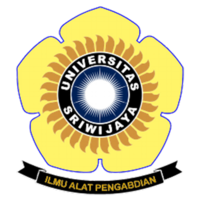BRITISH PARLIAMENTARY DEBATING SYSTEM IN IMPROVING STUDENTS’ SPEAKING ACHIEVEMENT
Abstract
Abstract: The aims of this study is to find out whether or not is there any significantly improvement on students’ speaking achievement who are taught by using British Parliamentary Debating System. The study was conducted as an experimental method. Non-equivalent control group design will be applied in this study. The population was all semester students of English Education Study Program of Baturaja University in the academic year 2017/2018 with the total number of population were 118. Cluster random sampling was used in taking the sample. The total numbers of students as sample were 51 students. There were three raters who will be involved in working and scoring the oral tests of speaking achievement. Based on the result of data analysis, the significant (2-tailed) between pre- and post- test in experimental group was 0,000 which means there was significant improvement in experimental group, while the significant (2-tailed) between pre- and post- test in control group was 0,677 which means there was no significant improvement in control group. The mean difference in the independent sample t-test between experiment and control group was 21.537. It indicated that there was a significant difference in students’ speaking achievement between those who were taught by using British Parliamentary Debating System and those who were not.
Key words: British Parliamentary Debating System, Speaking Achievement, Critical Thinking
Full Text:
780-783References
Best, J. W., & Kahn, J. V. (1993). Research in education (7th ed.). Boston, MA: Allyn
and Bacon.
Brown, H. D. (2004). Language assessment: Principles and classroom practices. New
York, NY: Pearson Education, Inc.
Carter, R., & Carthy, M. (1997). Exploring spoken English. UK: Cambridge University
Press.
Dale, P., & Wolf, J. C. (2000). Speech communication made simple. NY: Miami-Dade Community College.
Fauzan, U. (2016). Enhancing speaking Ability of EFL students through debate and peer assessment. EFL JOURNAL, 1(1), 2016. DOI: http://dx.doi.org/10.21462/eflj.v1i1.8
Huda, N. (2000). A national strategy in achieving English communication ability:
Globalization perspectives. Jurnal Ilmu Pendidikan, 4(Special ed.), 281-292.
Husnawadi, H., & Syamsudarni, S. (2016). The role of English debating tournament in the face of the ASEAN economy community (AEC). Jurnal Dinamika Ilmu 1(16).
Inoue, N., & Nakano, M. (2004). The benefits and costs of participating in competitive debate activities: Differences between Japanese and American college students. Wake Forest University/International Society for the Study of Argumentation. Venice Argumentation Conference.
Jerome, L., & Algarra, B. (2006). English-speaking union London debate challenge: 2005–06 final evaluation report. Cambridge and Chelmsford: Anglia Ruskin University
Littlewood, W. (1981). Communicative language teaching. UK: Cambridge
University Press.
O’ Malley, J. M., & Pierce, L. V. (1996). Authentic assessment for English language
learners. Addison-Wesley Company Inc
Widiati & Cahyono. (2006). The teaching of EFL Speaking in the Indonesian EFL.
TEFLIN Journal, 17(1). Retrieved from
journal.teflin.org/index.php/teflin/article/view/99.
Article Metrics
Abstract view : 357 times780-783 - 356 times
Refbacks
- There are currently no refbacks.
